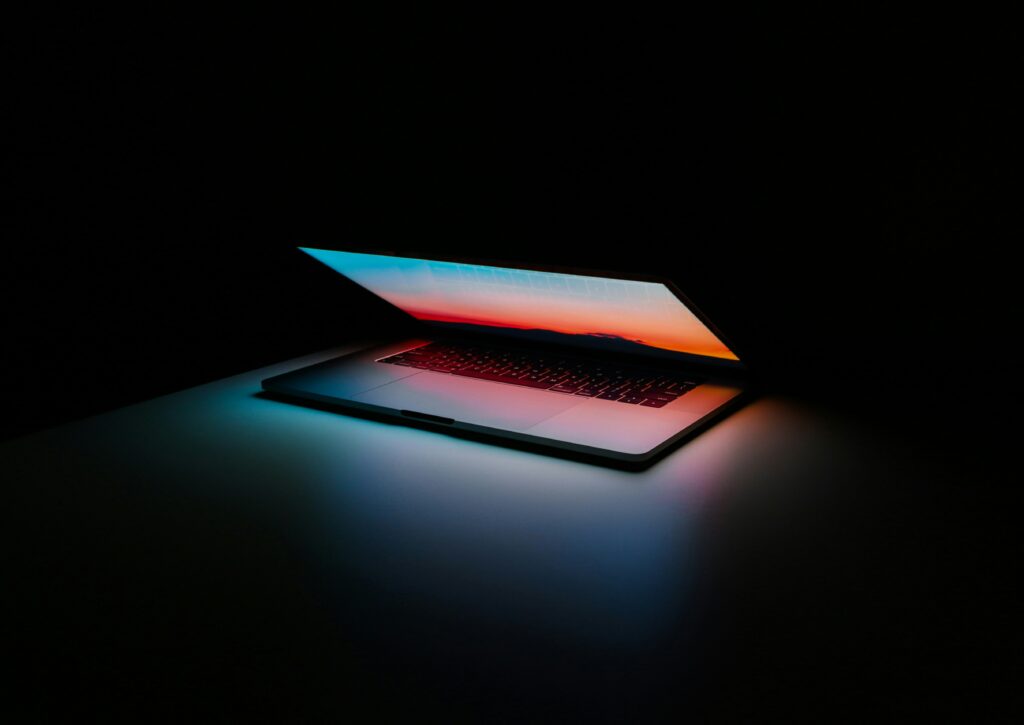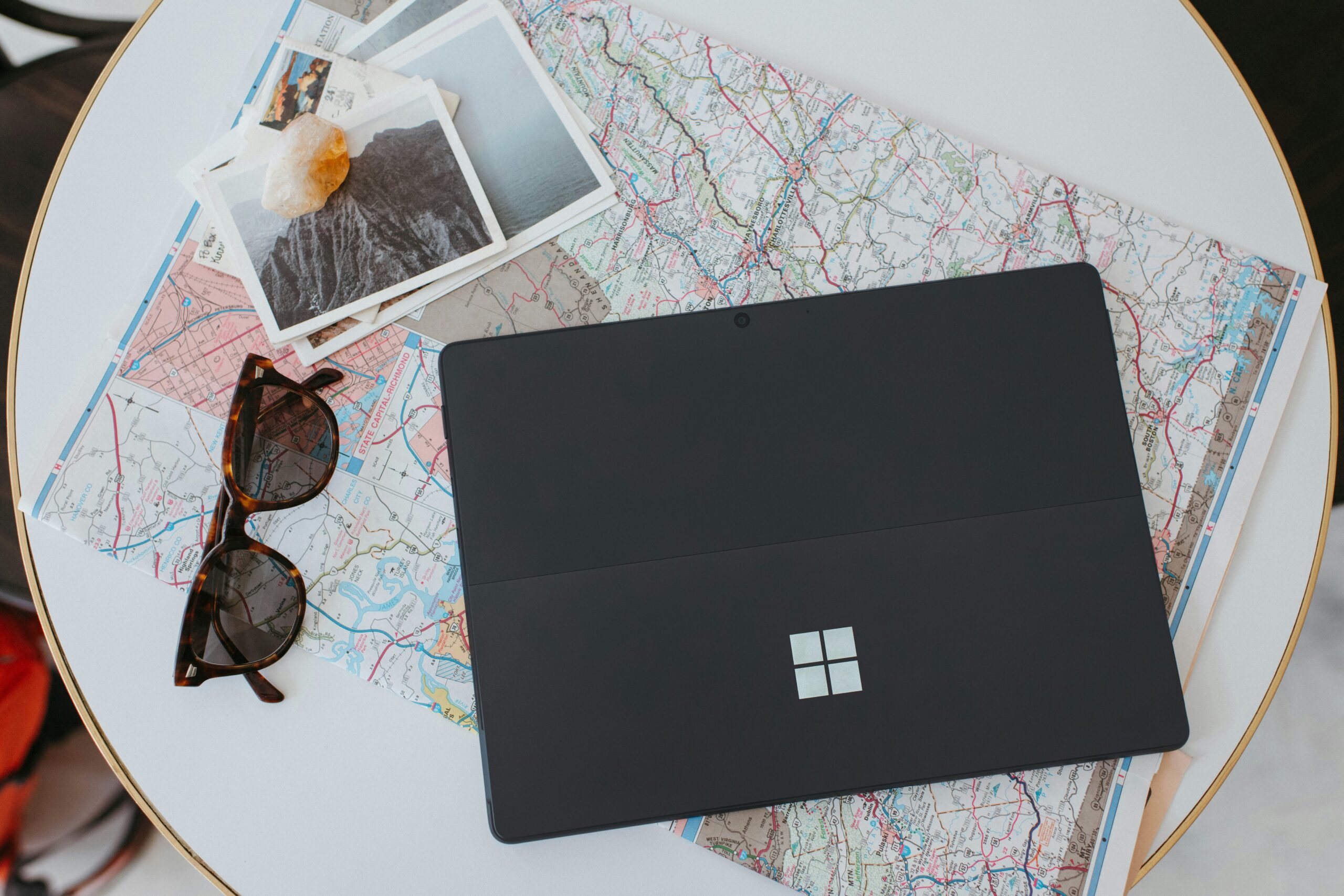In today’s digital world, technology can really mess with our sleep. A big study found that screens and the blue light they give off can stop our bodies from making melatonin. This leads to worse sleep.
We use our devices a lot for fun, talking to friends, and even to relax. But some tech habits can really hurt our sleep. Bad sleep can make us feel tired and affect our health in many ways.
Knowing which tech habits mess with our sleep is key. By changing these habits, we can sleep better. It’s a big step towards better health.
Key Takeaways
- Exposure to screens before bed can disrupt melatonin production.
- Certain tech habits can significantly impact sleep quality.
- Changing these habits can lead to improved sleep health.
- Being aware of sleep tech innovations can help mitigate sleep disruptions.
- Understanding the impact of technology on sleep is crucial for overall well-being.
The Technology-Sleep Connection
Technology has changed how we sleep. Technology sleep health is a big concern. We see how technology affects our sleep more and more.
Many studies show technology’s bad side for sleep. Screens and digital content keep our brains awake. This messes up our natural sleep cycle.
Looking closer, we find many ways technology messes with sleep. Knowing these helps us fix the problem.
| Technology Use | Impact on Sleep |
|---|---|
| Blue Light Exposure | Suppresses Melatonin Production |
| Social Media | Stimulates Brain Activity |
| Notifications | Disrupts Sleep Patterns |
By understanding how technology impacts sleep, we can improve our sleep. It’s time to make healthier sleep habits.
1. Blue Light Exposure Before Bedtime
One common tech habit that messes with sleep is blue light before bed. Smartphones, tablets, and computers all give off blue light, mostly in the evening.
Blue light is part of the visible light spectrum. Prolonged exposure to blue light can lower melatonin production. Melatonin is the hormone that helps us sleep.
How Blue Light Affects Melatonin Production
Melatonin starts making when it’s dark. But blue light makes the brain think it’s still day. This makes it hard to fall asleep and lowers sleep quality.
Blue light’s effect on melatonin is big. It can:
- Make it harder to fall asleep
- Lower sleep quality, causing fatigue and health problems
- Change our natural sleep-wake cycle
Practical Solutions to Reduce Blue Light Exposure
There are ways to cut down on blue light before bed:
- Wear blue light filtering glasses or use apps that block blue light
- Turn on night mode on devices to reduce blue light
- Stop using screens for at least an hour before bed
- Use dim red lights instead of bright white ones in the evening
By using these tips, people can lessen blue light’s bad effects on sleep.
2. Endless Social Media Scrolling
Scrolling through social media before bed can really mess with your sleep. In today’s world, technology disrupts sleep in many ways. Social media is a big problem because it keeps us engaged and often stressed.
Why Social Media Keeps Your Brain Activated
Social media makes your brain work hard because it releases dopamine. This is a chemical linked to happiness and reward. As you scroll, you see exciting and emotional content. This makes it hard to relax and get ready for sleep.
Creating Healthy Social Media Boundaries
To fight the sleep problems caused by social media, setting boundaries is key. Try not to use social media for a certain time before bed. Apps can also help track and limit your use. These steps can help protect your sleep quality technology.
Being careful with your social media use before bed can greatly improve your sleep. It also boosts your overall health.
3. Late-Night Binge-Watching
Late-night binge-watching is a big part of our entertainment today. But, it’s not good for our sleep. Streaming services are always available, making it easy to watch for hours into the night.
This habit messes up our sleep patterns. It also affects our minds and bodies. The stories and notifications from streaming can keep our brains active, making it tough to relax before bed.
The Streaming Service Trap
Streaming services are designed to keep us watching. They use features like autoplay and recommendations to keep us hooked. This can hurt our sleep health because screens and exciting content can mess with our natural sleep cycle.
Establishing Healthier Viewing Habits
To avoid the bad effects of binge-watching, we need better viewing habits. We can set a bedtime, use blue light glasses or apps, and plan our viewing times. This way, we can enjoy our shows without losing sleep.
| Viewing Habit | Impact on Sleep | Healthier Alternative |
|---|---|---|
| Late-night binge-watching | Disrupts sleep patterns, activates the brain | Set a specific bedtime, viewing schedule |
| Using screens before bed | Interferes with the body’s natural sleep-wake cycle | Use blue light filtering glasses or apps |
| Engaging with stimulating content | Makes it harder to wind down before sleep | Choose relaxing content or avoid screens before bed |
By knowing how tech affects our sleep and making a few changes, we can keep our sleep healthy. We can still enjoy streaming services without losing sleep.
4. Work-Related Tech Use Before Bed
Using work technology before bed can harm sleep. In today’s fast world, many check emails or work late. This can make it hard to sleep well.
How Work Emails Trigger Stress Responses
Work emails before bed can start the body’s stress response. Hormones like cortisol and adrenaline are released. These hormones help us react to danger but can keep us awake at night.
The constant connection to work emails keeps us alert. It’s hard for our minds to relax.
Creating Work-Life Digital Boundaries
To avoid the bad effects of work tech before bed, set digital limits. Here are some tips:
- Set a “work-free” time before bed to avoid work.
- Use email scheduling or auto-response to manage work messages.
- Do relaxing activities before bed, like reading or meditation, to signal sleep time.
By setting these boundaries, you can protect your sleep and well-being.
5. Sleeping With Devices in the Bedroom
Devices in the bedroom can mess up our sleep. Smartphones, tablets, or laptops nearby cause problems. This is because of notifications and the urge to check them at night.
Notification Disruptions and Sleep Quality
Notifications from devices can really hurt our sleep. Even silent ones can wake up our brain. A study showed that these notifications make our sleep lighter and less refreshing.
Effects of Notifications on Sleep:
- Disrupts normal sleep cycles
- Leads to lighter, less restorative sleep
- Increases stress and anxiety levels
Designing a Sleep-Friendly Bedroom
To get better sleep, we need a bedroom that helps us sleep. This means getting rid of devices and making it calm.
| Device | Action | Benefit |
|---|---|---|
| Smartphones | Remove from bedroom or put on silent mode | Reduces notification disruptions |
| TVs and Computers | Remove or cover | Minimizes blue light exposure and stimulation |
“A dark, quiet bedroom is essential for good sleep. Removing devices is a crucial step in creating this environment.”

By changing our bedrooms, we can sleep better and feel better overall.
OneFramework 6 Ways Technology Affects Your Sleep Health
OneFramework sheds light on how tech impacts sleep, focusing on six key areas. The link between tech use and sleep quality is intricate. It involves smartphone addiction, late-night screen time, and disrupted natural sleep cycles.
The Smartphone Addiction-Sleep Connection
Smartphone addiction can mess with your sleep. Notifications, social media, and the fear of missing out keep you awake. Studies show that blue light from phones can lower melatonin levels, a key sleep hormone.
Implementing a 21-Day Digital Detox Plan
To fight tech’s sleep impact, try a digital detox. Here’s a 21-day plan:
- Days 1-7: Start a screen-free bedtime routine.
- Days 8-14: Use social media only at set times.
- Days 15-21: Cut down on screens and find calm activities.
| Factor | Impact on Sleep |
|---|---|
| Blue Light Exposure | Suppresses melatonin production |
| Smartphone Addiction | Increases alertness and anxiety |
| Late-Night Screen Time | Delays sleep onset |
| Social Media Use | Activates brain, making it hard to relax |
| Work-Related Tech Use | Increases stress levels |
| Sleeping with Devices | Disrupts sleep due to notifications |
Conclusion
Technology has a big impact on how we sleep. It can affect us in many ways, like blue light and stress from emails. Knowing how tech affects sleep is key to fixing these problems.
Healthy tech habits can really help. Setting digital limits and making our bedrooms sleep-friendly are good starts. Tools like sleep apps and sunrise simulators can also be helpful.
It’s important to understand how tech and sleep interact. By being smart about our tech use, we can improve our sleep. This leads to better rest and a healthier life.
FAQ
How does blue light exposure from technology affect sleep?
Blue light from devices like phones and computers can lower melatonin levels. Melatonin is key for sleep. This makes it tough to fall asleep and can reduce sleep quality.
Can using technology before bed really disrupt sleep patterns?
Yes, using tech before bed can mess with sleep. Scrolling on social media or watching videos can keep your brain active. This makes it hard to relax and sleep.
What are some ways to reduce the impact of technology on sleep health?
To lessen tech’s impact on sleep, try blue light glasses or apps. Also, have a screen-free routine before bed. Make your bedroom a tech-free zone for better sleep.
How can I create healthier boundaries around social media use before bedtime?
Set a “no screen” time before bed. Use apps to limit social media. Choose relaxing activities before bed that don’t involve tech.
What is a digital detox plan, and how can it help improve sleep?
A digital detox plan means not using digital devices for a while, like 21 days. It reduces screen time and tech’s stimulating effects. This helps your body get back to its natural sleep cycle.
How does OneFramework suggest improving sleep health through technology management?
OneFramework says managing tech use, like smartphone addiction, is key for better sleep. They suggest a digital detox and healthier tech habits to improve sleep quality.
Can sleeping with devices in the bedroom affect sleep quality?
Yes, having devices in the bedroom can harm sleep. Notifications and blue light can disrupt sleep. Remove devices or set them to silent mode for better sleep.
What are some tech innovations that can help improve sleep?
Sleep tech innovations include sleep trackers, white noise machines, and apps for sleep improvement. These tools offer insights and strategies to enhance sleep quality.




